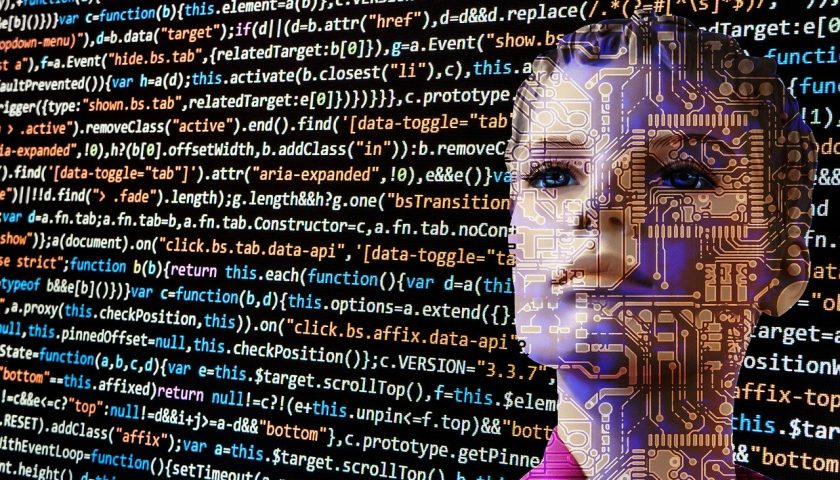
SGTraDex to digitalise the supply chain ecosystem.
Singapore Government has announced that the country will be stepping up investments to unlock the full potential of the digital revolution through collective action.
Building “digital infrastructure” for the future – SGTraDex
The pandemic has accelerated the overall shift to digital. Building a common “digital infrastructure” to underpin and ease data sharing will enable multiple stakeholders to come together and drive economic transformation.
A new common data infrastructure and framework, the Singapore Trade Data Exchange, or SGTraDex was therefore launched to enable this trusted sharing of trade data. Designed as a neutral and open digital infrastructure through a public-private partnership, it was conceptualised by the Alliance for Action (AfA) on Supply Chain Digitalisation. SGTraDex will support ecosystem-wide digital transformation, connecting supply chain ecosystems both locally and globally.
Three initial use cases were developed to push the boundaries of a trusted data exchange. The use cases demonstrated how SGTraDex can enable participants to strengthen the financing integrity of trade flows, enhance operational efficiency by optimising logistics functions across partners, and provide visibility on supply chain transactions.
The use cases have the potential to unlock more than S$200 million (US$150 million) of value annually when fully developed.
SGTraDex will continue to build on this initial momentum, develop more use cases, and drive adoption locally and globally. SGTraDex also has the flexibility to be the data infrastructure for many other sectors ranging from construction to aviation, unlocking even more potential value. This is part of a suite of digital infrastructure and utilities being developed, including the SGFinDex for the financial sector that provides a strong foundation for Singapore’s Digital Economy.
Investing in Research, Innovation and Enterprise
Investment in research and innovation is key to building solutions for the future and staying at the forefront of the digital economy. Singapore will invest close to S$70 million (US$50 million) under the Research, Innovation and Enterprise (RIE) plan, to launch our first national Future Communications Research & Development Programme (FCP).
The FCP supports cutting edge communications and connectivity research, and will in turn grow local capability to translate that into innovative products, services, and companies. This will be accomplished through the setup of new communications testbeds in 5G and beyond-5G, and support technology development, translation and training, while building up the talent pool in the areas of communications and connectivity technologies. As a start, the FCP has established a Memorandum of Understanding (MOU) with the 6G Flagship of Finland
Building Global Partnerships – Digital Economy Collaboration with Japan and Thailand
As the Global-Asia node for technology and innovation, such digital cooperation with like-minded partners reaffirms Singapore’s role in bolstering growth opportunities in the global digital economy. Singapore Minister for Communications and Information Josephine Teo also signed a MOC with Japan and an MOU with Thailand.
MOC to Promote Cooperation in ICT
Josephine Teo, Minister for Communications and Information (Singapore) and Ryota Takeda, Minister of Internal Affairs and Communications (Japan) have also signed an agreement to strengthen ICT collaboration between Singapore and Japan, enabling closer policy alignment and regulation on businesses.
The MOC will facilitate a pilot project on electronic transferable records and the exchange of information on best practices and policies relating to the Digital Economy, Artificial Intelligence, and cybersecurity. It also includes closer collaborations through joint training and programmes on AI implementation, AI governance and ethics, as well as cybersecurity capacity building.
MOU for Cooperation in the Field of Digital Economy
Josephine Teo, Minister for Communications and Information (Singapore) and Chaiwut Thanakhamanusorn Minister of Digital Economy and Society (Thailand) will deepen with the signing of this MOU, which has been expanded to include new areas of cooperation in the Digital Economy such as digital connectivity, smart cities and AI governance. Both sides are also exploring interoperability between digital systems and frameworks that enable e-documentation.
Deputy Prime Minister Heng Swee Keat said the digital revolution was well underway, even before COVID-19. But the pandemic has turbocharged the pace of digital change.
“Online transactions and e-payments shot up during the pandemic, in Singapore and the region,”. He said. “According to a McKinsey survey, companies around the world have accelerated digitisation by three to four years.
With the Internet of Things, semiconductor chips have spread from computers and smart phones, to cars and home appliances.”
Minister Heng noted in Asia, and Southeast Asia in particular, the potential for digital is tremendous. b. Southeast Asia’s digital economy is projected to grow three-fold by 2025, expanding to over US$300billion. Investment in technology remains strong, despite the headwinds and consumer demand is growing rapidly, boosted by an expanding middle class and a fast-growing internet population.
“Just as globalisation drove decades of economic growth around the world, I believe the fast-growing digital economy can propel us to a better future,” he said. Digital technology has redefined the way we work, live and play.”
According to the Minister, COVID-19 has accelerated the adoption of technology beyond the wildest dream of many CTOs. However the question is how it can collectively redefine digital technology in a way that will lead to a better future.
“Many of the possibilities offered by the digital revolution – and there are plenty – can be within reach, if each of us pursue them with our best effort,” stated Minister Heng. “We can safely leave these pursuits to the grit, resourcefulness and ingenuity of companies and entrepreneurs.”
“Unlocking the full potential of digital goes beyond our individual efforts. Some possibilities can only be realised through collective action. What are some of these areas?” asked the Minister. “Let me highlight three secure; seamless; and user-centric data flows.”
The digital revolution that is being experienced today is powered by the technologies that we had patiently invested in over the decades. According to Minister Heng, AI for example, has been in development since the 1980s. A major milestone came in 1997, when Deep Blue became the first chess-playing computer to defeat a reigning world champion. But it was not until the last five to ten years that we began to truly harness the potential of AI.
“Even as we leverage on AI, IOT and 5G to power today’s digital revolution, we must continue to invest patient capital for new game changers in the next bound of growth,” he noticed. “During a global recession, it is understandable that investments for the long term would come under pressure. But we should resist these pressures, as sustained investment in science and technology is critical to supporting innovation.”
Singapore has continued to stay the course on its investments in research and development; another critical area is in digital communications and 5G networks are being rolled out and are expected to cover one-third of the world’s population by 2025.
“Over the next five years, we will be investing US$19billion in research, innovation and enterprise, which includes a strong focus on digital technology,” he said. “We are building deeper capabilities in areas such as quantum and blockchain technologies.”




